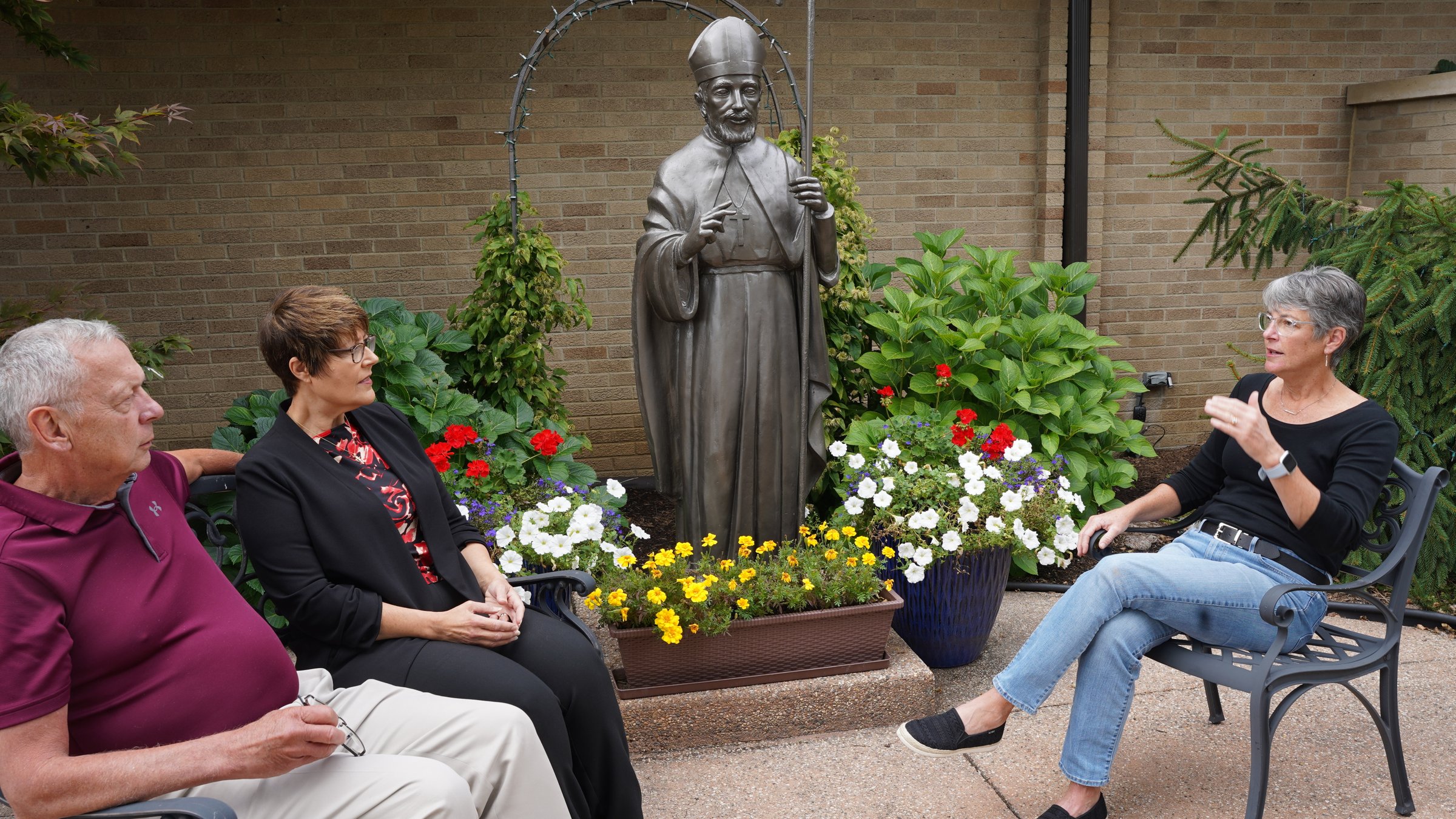Bible study group met online and in person, creating community centered on Scripture amidst thrall of pandemic
ROCHESTER HILLS ─ Catholics have long had a bad reputation for not knowing Scripture as well as their Protestant brothers and sisters.
But with the rise in popularity of "The Bible in a Year" podcast by Fr. Mike Schmitz and other Catholic scholars delving into Scriptures on a national stage, there has been a renaissance of Biblical study in the church.
Even locally, the Catholic Biblical School of Michigan has seen an uptick in interest in its course.
This couldn’t be more true for four members of St. Irenaeus Parish in Rochester Hills, who embarked on a four-year journey into the Scripture through the Catholic Biblical School of Michigan’s online course.
It was a chance to become rooted in the Scriptures at a time when – unbeknown to them – the entire world would be changing.
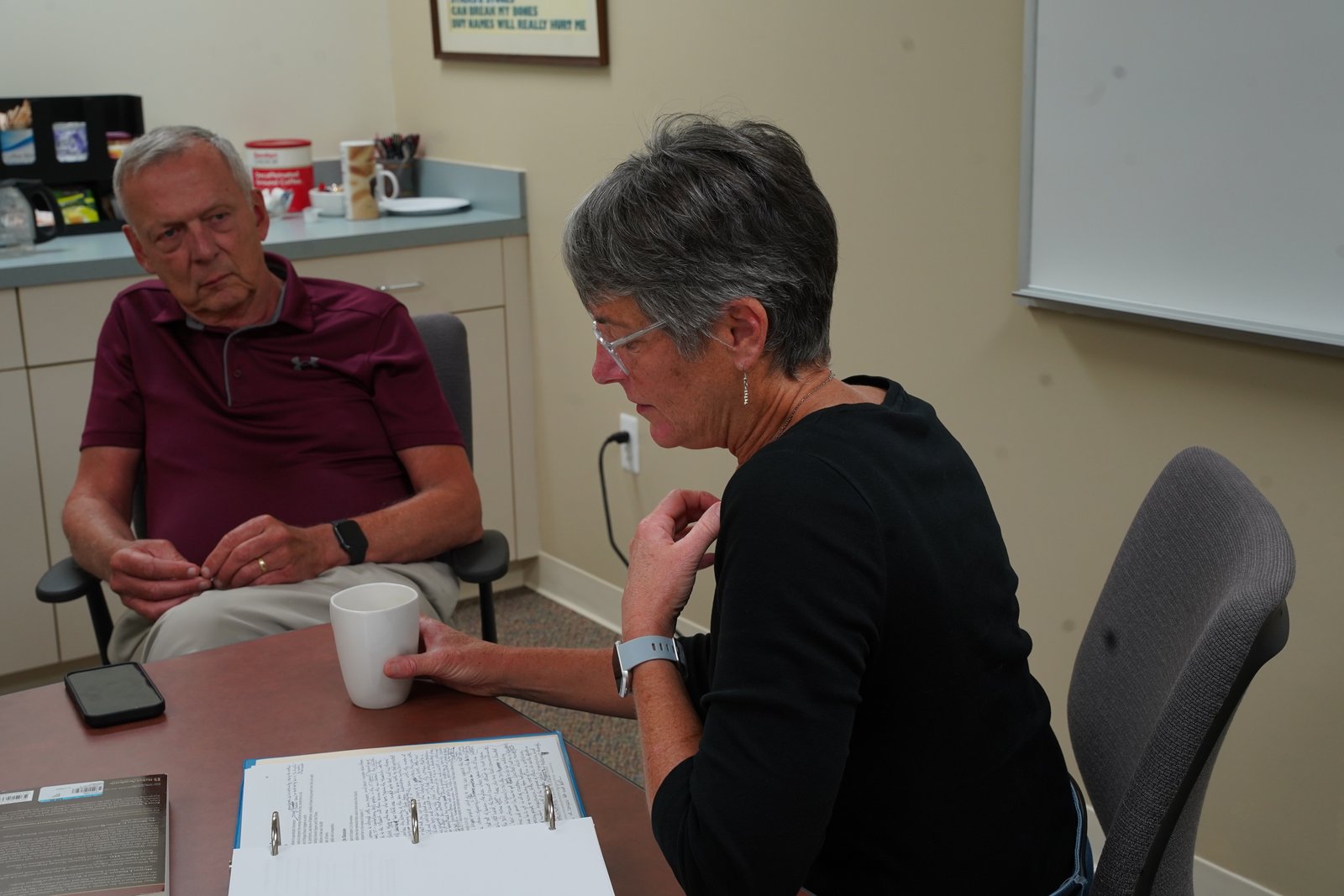
“It was 2019, and the Catholic Biblical School of Michigan was offering a fully online version, and that really attracted me,” Jennifer Gerada of St. Ireneus Parish told Detroit Catholic. “I wouldn’t have to travel an hour and 45 minutes to another parish every week, and it didn’t matter if I was out of town for a week. I didn’t have to miss a class; I could just open up my computer or tablet.”
The convenience prompted her and other parishioners to meet at St. Irenaeus in the Fall of 2019 for small group meetings to discuss the week’s content.
Then, in March 2020, the world found itself more online and less in-person. But with the Catholic Biblical of Michigan’s online curriculum, the group continued to meet virtually – albeit one member in the four-person cohort had to drop out because of added work requirements during the heat of the COVID pandemic.
“Our small group just moved to being over the phone,” Gerada said. “It was the perfect way to hear yourself converse and answer questions, and it caused you to think about things you maybe wouldn’t have come up with yourself during the homework. We developed a trust and understanding with each other, sharing our perspectives, and had a very open dialogue and banter about what we were learning.”
Married couple Colleen and Glen Steyer were on the other end of the line of those phone-in study sessions, sitting at the kitchen table on speaker phone, going over the weekly readings and reflections provided by Catholic Biblical School of Michigan instructors.
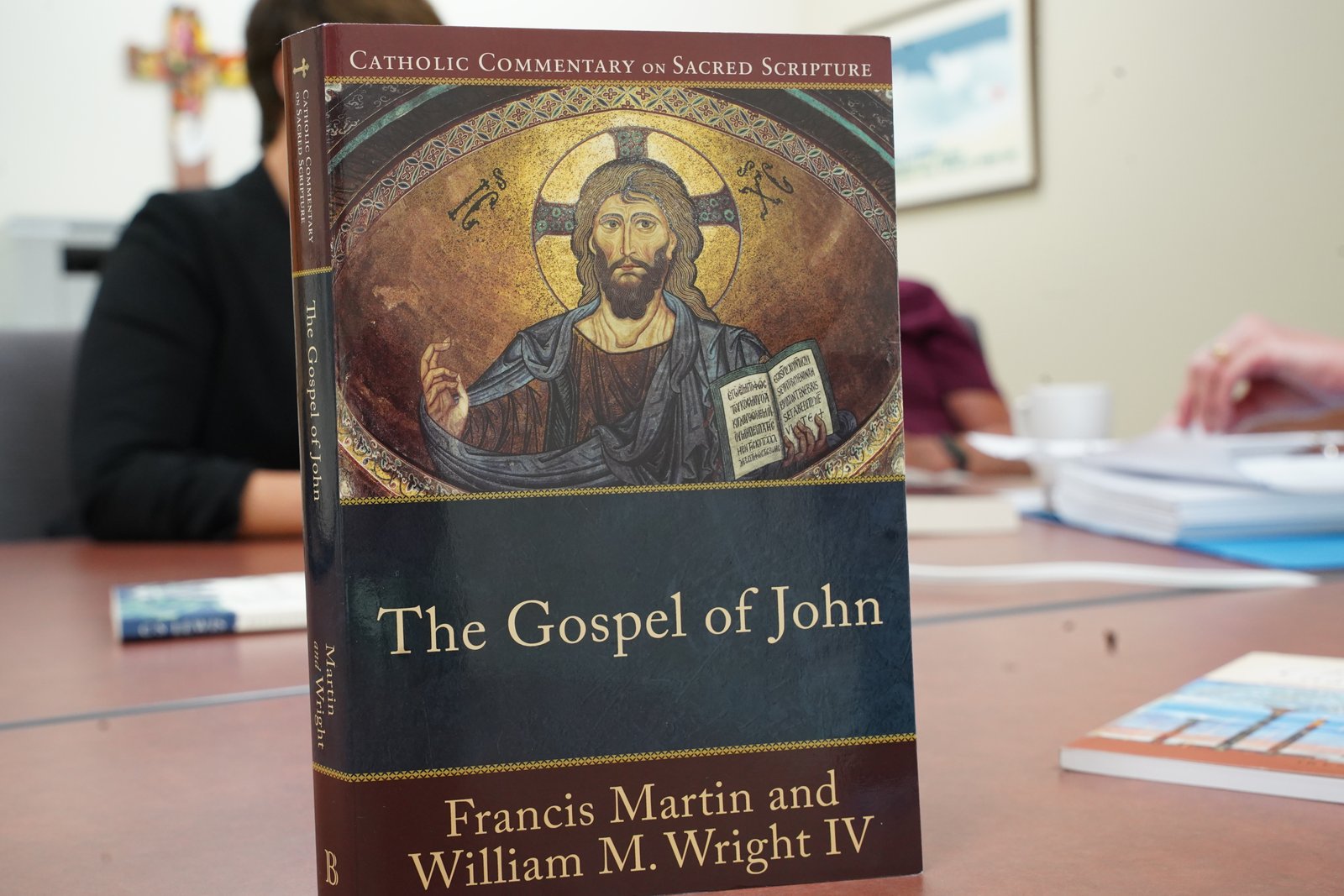
“We both had several friends who had taken the course in the past and heard good things about it,” Glen Steyer said. “We both had been growing in our desire to read and study Scripture and integrate it into our daily lives. The opportunity came up for this course and doing it with a group in our parish, so we took advantage.”
The course runs from September through May over the span of four years, each year covering a different theme: “Created for Covenant,” which covers the Jewish history of God’s covenant with His people; “Encountering Jesus and Joining His Mission,” which covers the three synoptic Gospels (Matthew, Mark, Luke) and the letters to the early disciples; "Called to the Return to Love,” which delves into the prophets of the Old Testament; “Walking Daily With God,” which goes into John’s Gospel and Revelation.
“The course begins with a book on the topic to start before you get into the Bible,” Colleen Steyer said. “The first part of the class would be a discussion on the book. Then, every Sunday, we’d get an email from our instructor with an outline for the week, usually four videos that are approximately 15 minutes in length and then questions we’d discuss as a group and the homework would be handed in, not really for a grade, but for critique.”
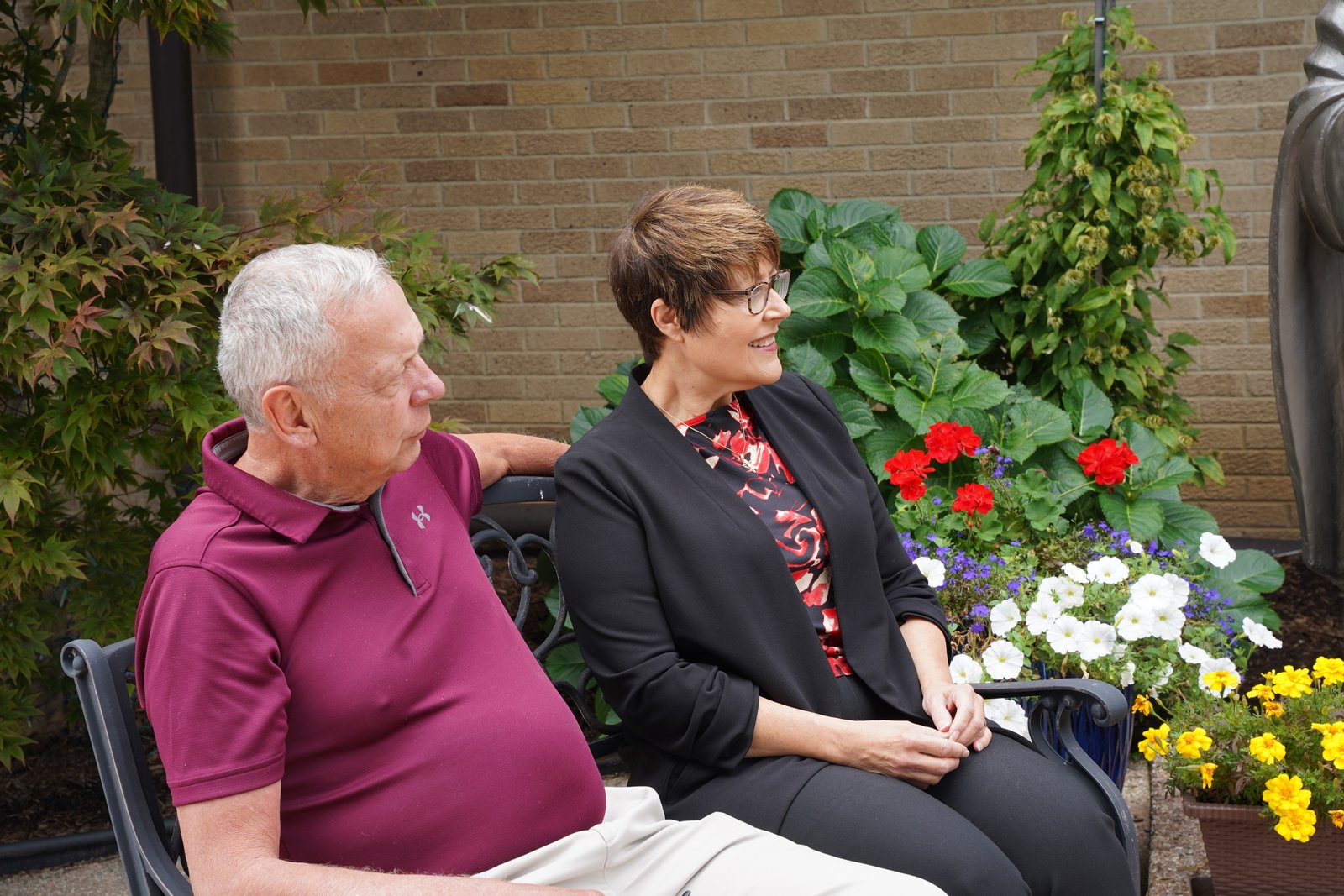
The Steyers were drawn in through the supplement readings, which included texts such as the Holman Bible Atlas, “You Can Understand the Bible” by Peter Kreeft. The couple attests that once they began the coursework, they wanted to seek out more reading material.
“Once you start going deeper, your eyes open to Scripture, and you want to learn more, you want to go deeper,” Colleen Steyer said. “The one thing I learned is there is so much more out there I want to learn. Through this class, you learned the series of Catholic commentary of Sacred Scripture through the assigned books we had in the series. We ended up buying the whole Peter Kreeft series – they are just awesome books.”
Beyond the assigned readings and supplemental materials, the course’s layout allows for students to grasp a more holistic view of the Bible, seeing how the Old and New Testaments connect and how the entire book resembles a complete narrative of salvation history.
“One of the things that the course really brings out is the continuity between the Old Testament and the New Testament, the vast amount of references that are both overt and subtle,” Glen Steyer said. “How much Jesus refers to characters or themes from the Old Testament that make their way into the New Testaments, whether it was the prophets or the psalms, and that really tied things together quite a bit for me.”
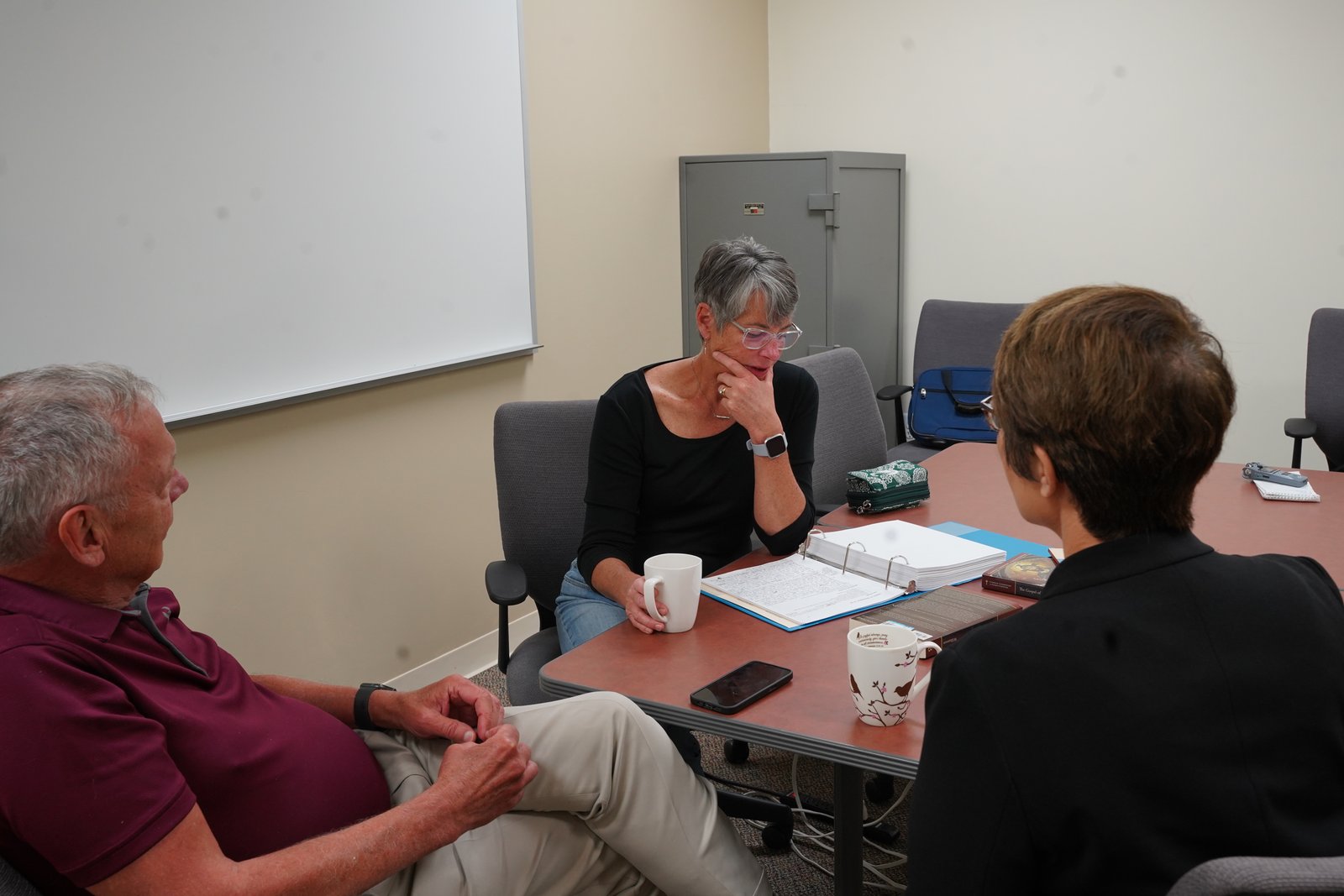
The small St. Irenaeus cohort enjoyed their group study sessions so much they resorted to meeting out in the garden in front of the church – even bundling up during the colder months – to discuss the week’s material and how it has developed a more nuanced, mature view of the Bible.
“It’s not rote learning, which is great; you are trying to understand the complete picture,” Gerada said. “I grew up Missouri Synod Lutheran, had all my Sunday school lessons, I could still sing you jingles of Bible study songs. Those are great, but then, as an adult, you are just relying on a few phrases. I think as we physically and mentally mature, God wants us to come into a different relationship with Him, and a guided approach to the Bible like this is a better way of understanding how we are staying true to God’s covenant now.”
With online courses becoming more ubiquitous – thanks in part to the COVID pandemic and groups such as the St. Irenaeus cohort – there has been a need for more small-group facilitators, which is why Gerada is serving as a facilitator for people who’ve signed up for fully online courses but want to have the benefit of collaborating and bouncing ideas off other people in a group setting.
“As the Catholic Biblical School of Michigan enhances and continues its fully online courses, in addition to in-person courses, they are finding people attracted to fully online courses and don’t want those folks to miss out on small-group opportunities,” Gerada said. “I’ll be serving as a facilitator to help people engage in these small-group conversations, these study groups, to help them get more out of the course. I’ve met some folk in my small group, just starting them on a topic and then watching them take it all over.”
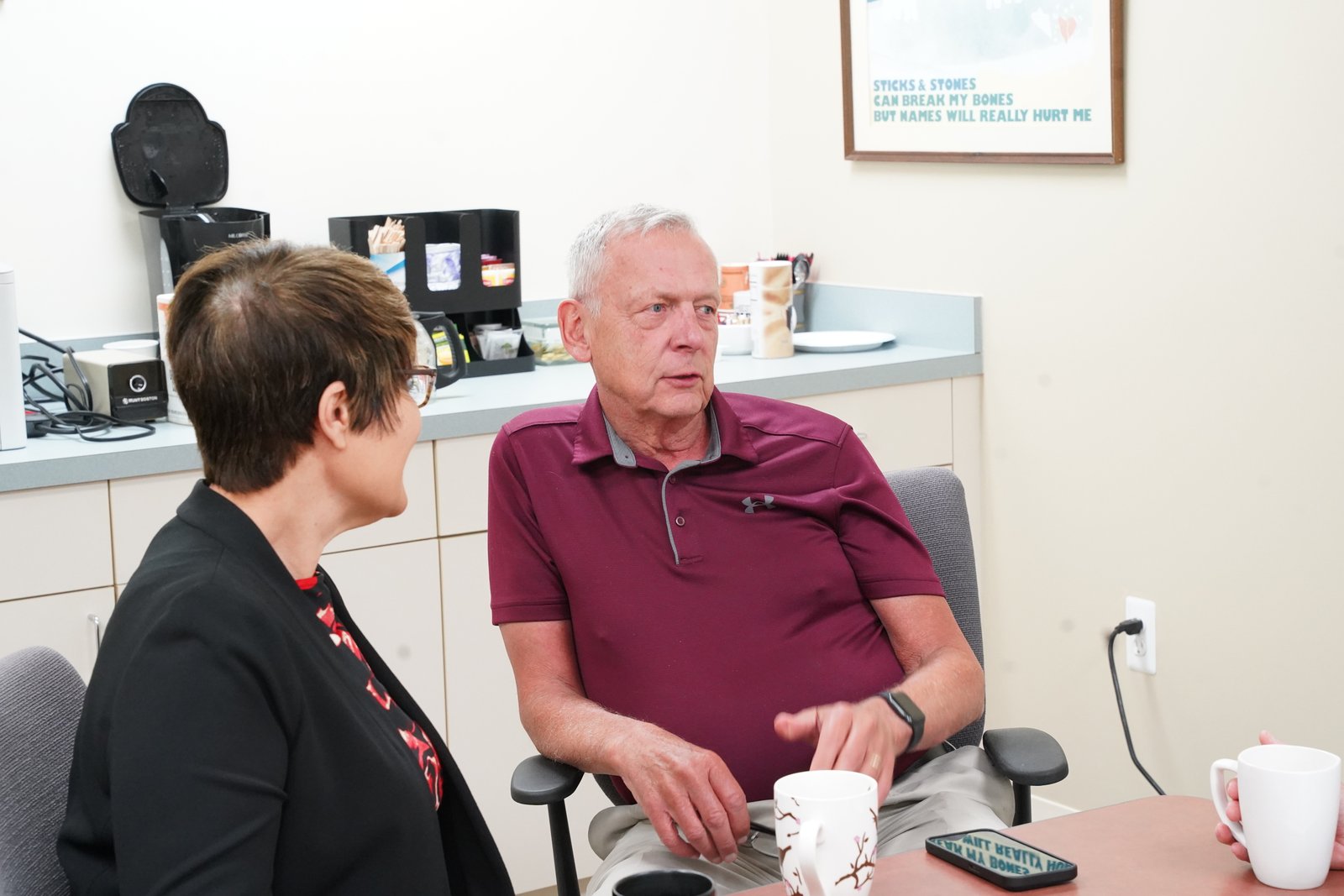
Gerada enjoys being able to revisit the material all over again, but her main focus is encouraging the group she supervises to develop their own conversations and insights organically.
For the St. Ireanaus group, the Catholic Biblical School curriculum has brought new insight into Scripture, insight they hope other Catholics will pursue, gaining a greater appreciation of just how much the faith is rooted in Scripture.
“I encourage everyone to, if you are not already, start reading the Bible on your own or just pick up a resource that helps you with the daily readings,” Gerada said. “Start small. Spend 10 minutes while eating breakfast or drinking your coffee in the morning. There are times in my life when all I could do was get the kids ready for school or get ready for work, then get going for the day. By bringing the word of God into your consciousness, it will impact on who you will think, how you will speak, how you will behave.”


